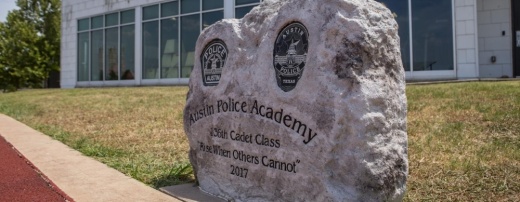According to a June 1 memo from APD interim Chief Joseph Chacon, 17 of those 23 recommendations are now complete, with three more coming before the academy relaunches June 7 and the remaining three identified as "continuing" processes that will play out during the entirety of the 34-week academy training cycle.
The development of the benchmarks from outside evaluator Kroll & Associates stemmed from a yearlong process to rebuild aspects of the academy's curriculum and structure. Cadet training had been on hold since early last year after allegations of a toxic culture within APD.
Among the tasks APD expects to achieve this week is the hiring of a new academy training supervisor responsible for curriculum updates; Chacon said that both a finalist and a runner-up for the position have been selected as of June 1 in the event the preferred candidate does not accept the job. Additional "ongoing" academy items slated for completion by June 4 are APD's review of a final report from Kroll and the development of a faculty evaluation process.
The three final tasks set to run through the duration of the academy this year are focused on community involvement, specifically regarding the academy curriculum review committee, or ACRC. Composed of Austin residents, city staff, APD representatives and Texas State University faculty, the review committee is expected to oversee a range of training items in addition to its recommended tasks.
"The committee is reviewing academy lesson plans to make recommendations relating to and the confirmation of the inclusion of diversity, equity, inclusion (DEI) content, active learning components, emphasis of de-escalation, community teaching, Spanish language instruction, and trauma-informed training. This committee is also reviewing presentations, handouts and other materials used at the academy instruction to verify that all elements noted are incorporated in the class materials," Chacon said.
As part of the Kroll blueprint, the review committee will also identify academy courses to be taught by community subject matter experts rather than police representatives and select those experts to take on instructional duties. The committee will be involved in a review of the classes in place for the pilot academy as well, a process that will continue through the year.
Some community members told council on May 6 the changes made before the cadet academy restarts such as the opportunity for members of the public to review academy curriculum and recommend changes are insufficient. In the memo, Chacon highlighted continued community involvement.
Chacon said the review committee will have met four times ahead of the academy launch and is expected to continue gathering regularly as a "critical component" for oversight of current and possible future cadet classes' instructional materials.
Additional changes previously discussed by Chacon and Austin city officials and revisited in the June memo are the academy's shift toward "adult learning" principles aimed at more active instruction methods, and the implementation of Joyce James Consulting's two-day Groundwater Analysis of Racial Inequities training for all academy faculty.
Chacon said that workshop, which is centered on the recognition of racial hierarchies and bias in systems including policing, will be extended to all cadets and field training officers in the future as well.
As APD continues with its 144th Cadet Academy over the coming months, evaluators with Kroll & Associates will be on hand to observe classes and training as part of their city-contracted review of the program. Chacon said Kroll team members met with academy leadership last week, and with that oversight and civilian participation in place, he is expecting an academy rollout in line with the city and consultants' expectations.
"Our goal throughout this process has been to create a new, reimagined police academy. With the support of the city manager’s office, city staff, and our community partners, I am confident that the department is on the right path to achieving that," Chacon said.





